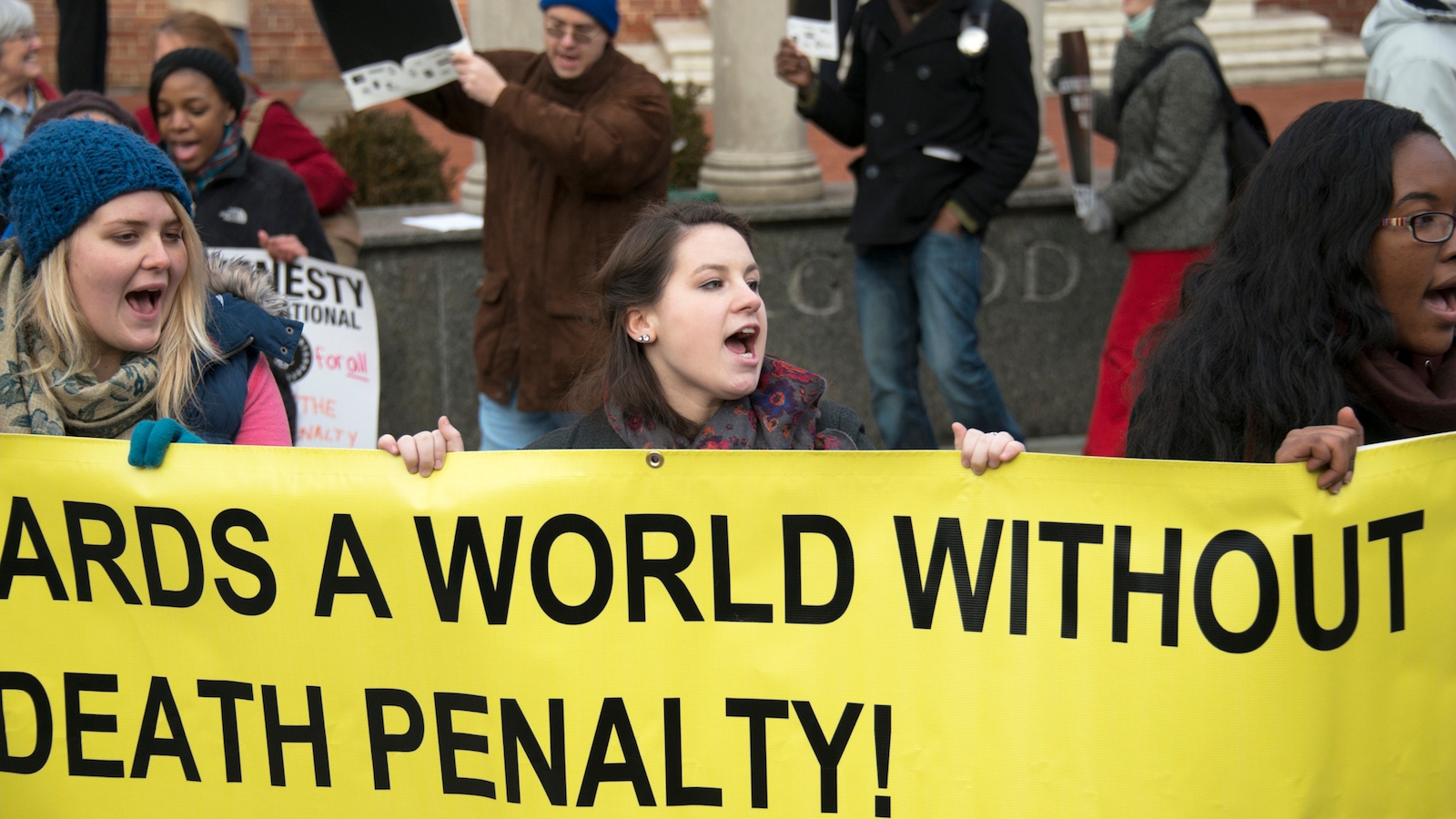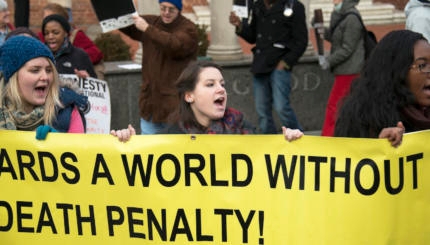My journey toward becoming a Jewish abolitionist began with a piece of pecan pie. In January 1992, presidential candidate Bill Clinton left the campaign trail to preside over the execution of Ricky Ray Rector, a black man who was so mentally impaired at the time he was put to death that he told his guards he wanted to save the slice of pecan pie he received with his last meal “for later.”
The Rector execution, with its elements of race, class, cruelty and political expediency, exemplified for me what was wrong with the death penalty in America. Prior to 1992 my feelings about capital punishment could be described as a vague sense that it was probably not a good idea. I knew the arguments about innocence, and racial and economic disparity, and I was aware that Reform Judaism — the movement I had grown up in — had long opposed capital punishment. But the issue was not terribly important to me as a Jew, and certainly did not seem to demand a Jewish response. The Rector execution sent me back to the sources — to see what Judaism said about how a society judged those deemed unable to be rehabilitated. I reached the conclusion that the death penalty in America could not be reconciled with Jewish values and tradition. Now, I direct a Jewish social justice organization that works toward a death penalty moratorium in California.
Judaism offers three primary rationales for the death penalty: deterrence, retribution, and the Maimonidian notion that murder, unlike other terrible crimes, irrevocably rends the divinely ordained social fabric, requiring the most extreme measures to restore balance. However, Judaism also places an extraordinarily high premium on each individual human life, exhibits a profound concern about executing an innocent or undeserving defendant, and stresses the importance of the possibility of (the Jewish process of repentance). Seen through these complementary and competing Jewish lenses, I believe that one must conclude that the death penalty as it exists in the United States is broken and immoral and should be abolished.
There is no evidence to suggest that capital punishment serves as a deterrent against committing terrible crimes. And retribution can now be affected by means other than capital punishment. Long prison sentences — especially life-without-parole — unavailable in biblical and ic times, can now fulfill the retributive requirement of Jewish law, while ensuring that innocents are not unintentionally executed. To the extent that a murderer has attempted to undo the fabric of society, long prison sentences also serve to remove the murderer from society and thus achieve Maimonides’ goal of restoring a sense of moral balance. Such a harsh sentence addresses the need to protect community while acknowledging the community’s unwillingness to tolerate those who would undo society.

Help us keep Jewish knowledge accessible to millions of people around the world.
Your donation to My Jewish Learning fuels endless journeys of Jewish discovery. With your help, My Jewish Learning can continue to provide nonstop opportunities for learning, connection and growth.
The American system of capital punishment is riddled with the unsolvable problems that challenged the Talmudic rabbis who erected stringent procedural and evidentiary safeguards to ensure that innocents would not be executed. Even proponents of the death penalty in America acknowledge that innocents may be (and in fact have been) executed. This risk, exacerbated by the fact that capital defendants are often provided with inadequate counsel, is an unacceptable risk in the Jewish ethical system.
Beyond the issue of innocence, the death penalty in the United States disproportionately affects the poor and people of color. Abhorrent of such an inequitable dual system of justice, the Levitical demand “You shall have one standard for the stranger and the citizen alike” is reinforced in the Talmud (B. Sanhedrin 32a) to ensure procedural fairness in capital proceedings.
Finally, punitive measures other than capital punishment also open the door to the potential for teshuvah. Jewish tradition states that a murderer, unlike most other offenders, can never make total teshuvah (since he or she cannot be forgiven by the victim). But our tradition also recognizes that some teshuvah is always possible, and that even partial teshuvah can contribute to healing a scarred community.
In a famous portion of Mishnha Makkot (1:10) dealing with rabbinic reluctance toward the death penalty, Rabbis Tarfon and Akiva emerge as Talmudic-era abolitionists. The concerns that motivated these rabbis are with us 2,000 years later. We still value human life above all else and hold open the possibility of repentance. We still have not found a way to ensure that innocent people are not executed, or that the death penalty is administered fairly. In an age when murderers can be safely removed from our midst by means other than capital punishment, it is time for Jews to demand an end to a practice that cannot be reconciled with the highest values of our tradition. It is time for us to call for abolition.
Reprinted with permission from Sh’ma: A Journal of Jewish Responsibility (October 2002).



